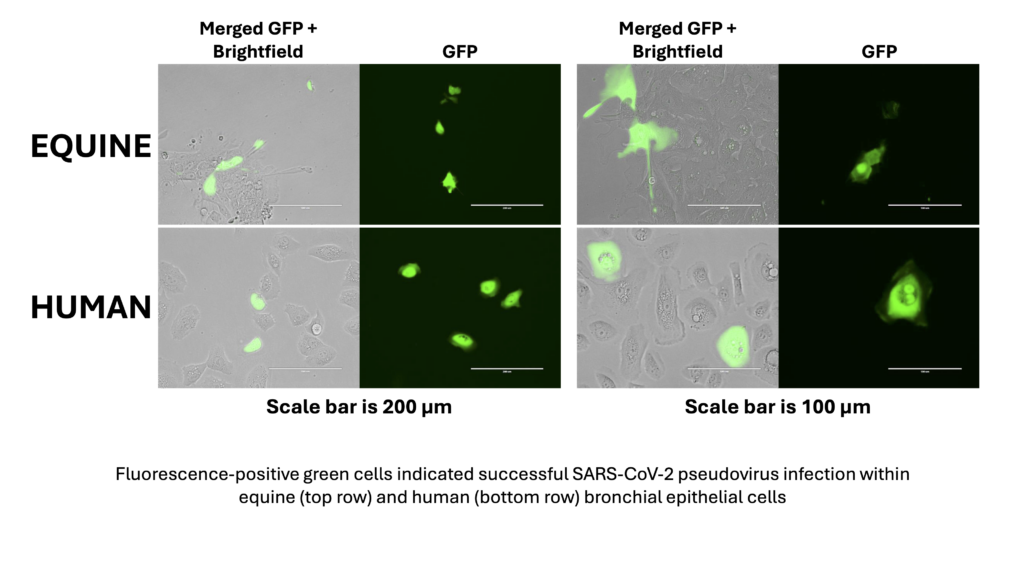Demonstrating Equine Lung Cells Are Susceptible To SARS-CoV-2 Infection
By Dr. Rebecca Legere | Ph.D. Student in Large Animal Clinical Sciences

SARS-CoV-2, the virus that causes COVID-19, infects many species of animals, but until recently, it was unknown whether horses were susceptible.
SARS-CoV-2 infects cells in the respiratory tract by binding the virus’s spike protein to a cell surface receptor called angiotensin-converting enzyme 2 (ACE2). ACE2 in horses is very similar to human ACE2, suggesting that SARS-CoV-2 might infect horses.
Horses in contact with COVID-positive humans are known to develop antibodies against SARS-CoV-2, indicating that horses exposed to the virus develop immune responses to it. Yet to date, no horses have developed disease from SARS-CoV-2 following either natural exposure or experimental infection. Therefore, we investigated whether equine airway cells could be infected with SARS-CoV-2.
First, we developed 3D models of equine ACE2 and human ACE2 and then compared the receptor’s ability to bind to the SARS-CoV-2 spike protein. Next, we confirmed that ACE2 was present on equine lung cells and compared the amount of ACE2 in horse and human lung cells. Finally, we used a green fluorescent virus coated with the SARS-CoV-2 spike protein to infect equine and human lung cells. Cells infected with this SARS-CoV-2 pseudovirus glowed green whereas uninfected cells did not, which allowed us to clearly identify and count the infected cells.
We found that equine lung cells could be infected with the SARS-CoV-2 pseudovirus but less so than human cells. This suggests that horses are less susceptible to infection than humans; nevertheless, people shedding SARS-CoV-2 virus should isolate from horses because even if horses do not get sick, they might be infected and potentially spread the virus.
Different viral variants (such as delta and omicron) have emerged since this study that might be more infective for horses than the original variant on which our work was based. Therefore, horses should be monitored for SARS-CoV-2 infection as variants continue to emerge and as we live with SARS-CoV-2 as an endemic infection.
This work was published in the American Journal of Veterinary Research.
